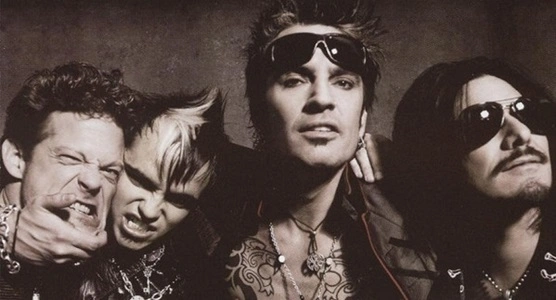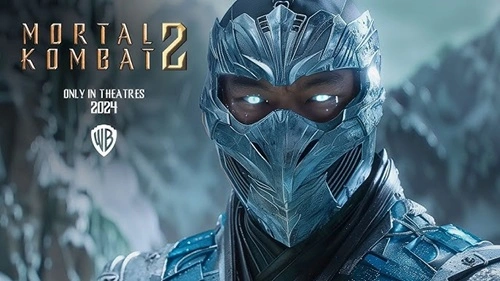The world of reality television has seen many bands rise to stardom and fall from grace, but few cases are as intriguing as that of Supernova, a rock supergroup formed during the show Rock Star: Supernova. The concept seemed like a surefire hit: a high-profile band formed through a talent competition, airing on a major network like TLC. However, the band’s performance—both on the show and in the real world—did not live up to expectations. This article explores why Supernova struggled to resonate with audiences and the factors that contributed to its poor performance on TLC and beyond.
The Formation of Supernova: A Bold Experiment

Rock Star: Supernova was a reality show created to form a new supergroup from scratch. The band consisted of accomplished musicians: drummer Tommy Lee (Mötley Crüe), bassist Jason Newsted (Metallica), and guitarist Gilby Clarke (Guns N’ Roses). The trio aimed to find a lead vocalist through a televised competition, with the hope of creating a chart-topping rock band.
The concept of assembling a supergroup in a reality-show format was unique and innovative, merging the allure of rock stardom with the drama of a competition series. TLC’s decision to feature the show aimed to appeal to music fans and capitalize on the popularity of talent-based reality TV, following in the footsteps of American Idol and The Voice.
Why Supernova Struggled on TLC
Despite the initial hype and strong branding, Supernova’s journey did not go as planned. Several factors contributed to the lackluster performance of the show and the band’s subsequent failure.
1. Unclear Audience Targeting
TLC, traditionally known for lifestyle, family, and reality content, was not the ideal platform for a rock music competition. While networks like MTV or VH1 had a strong foothold in the music and entertainment space, TLC’s audience primarily consisted of viewers interested in home improvement, personal stories, and reality dramas. This mismatch alienated both music fans, who didn’t think to tune into TLC for a rock show, and TLC’s core audience, who had little interest in hard rock and heavy metal.
2. Mediocre Songwriting and Material
Once the band was formed, the original material produced by Supernova failed to resonate with audiences. While the individual members of the band were renowned for their contributions to legendary rock acts, their collective output lacked the cohesion and innovation fans expected. Songs like “It’s All Love” didn’t capture the raw energy or authenticity that made each member famous. Critics and fans alike described the music as uninspired and generic, falling short of the high expectations set by the members’ previous successes.
3. Incompatibility Among Members
Supergroups often face the challenge of blending distinct artistic styles and personalities. In Supernova’s case, the dynamic between Tommy Lee, Jason Newsted, and Gilby Clarke seemed forced. The chemistry that defines successful bands was missing, leading to performances and interviews that felt disjointed. The competition’s winner, Lukas Rossi, had a unique voice and stage presence but struggled to fit into the band’s established aesthetic and sound.
4. Legal Challenges
Even before the band’s debut album was released, legal hurdles added to their woes. A punk band from California, also named Supernova, filed a lawsuit against the show and the group over the use of the name. The legal dispute not only delayed promotional efforts but also created negative publicity that overshadowed the band’s music.
5. Poor Promotion and Marketing
The marketing strategy for Rock Star: Supernova and the band itself lacked the intensity needed to build a loyal fan base. TLC’s promotional efforts were inconsistent, failing to generate the same level of excitement as other music-based reality shows. Additionally, the band’s short-lived tour didn’t draw large crowds, further highlighting the disconnect between the show’s concept and real-world success.
Lessons from Supernova’s Failure
The story of Supernova offers valuable insights into the complexities of forming and marketing a supergroup, particularly through a reality TV format.
-
Platform Alignment Matters
Choosing the right network is crucial for reaching the intended audience. A rock-focused reality show would have fared better on a channel like MTV, where viewers were already invested in music-related content. -
Authenticity Is Key
Fans of rock music crave authenticity and originality. Supernova’s failure to deliver compelling songs and a cohesive identity undermined its credibility in the eyes of the audience. -
Chemistry Cannot Be Manufactured
While individual talent is important, the success of a band relies on the chemistry between its members. Supernova’s lack of synergy hindered its ability to create a lasting impact. -
Expectations Can Be a Double-Edged Sword
The supergroup’s lineup raised expectations to an almost unattainable level. When the music and performances didn’t match the hype, disappointment was inevitable.
Conclusion
Supernova’s failure on TLC and in the music industry serves as a cautionary tale about the challenges of combining reality television with band formation. While the concept of Rock Star: Supernova was ambitious and intriguing, its execution fell short due to mismatched platforms, lackluster material, and insufficient audience engagement.
Ultimately, Supernova’s story highlights the importance of authenticity, synergy, and strategic marketing in the competitive world of music and entertainment. Though the band’s journey was brief, it remains a fascinating example of how even the brightest stars can fade without the right conditions to sustain them.



